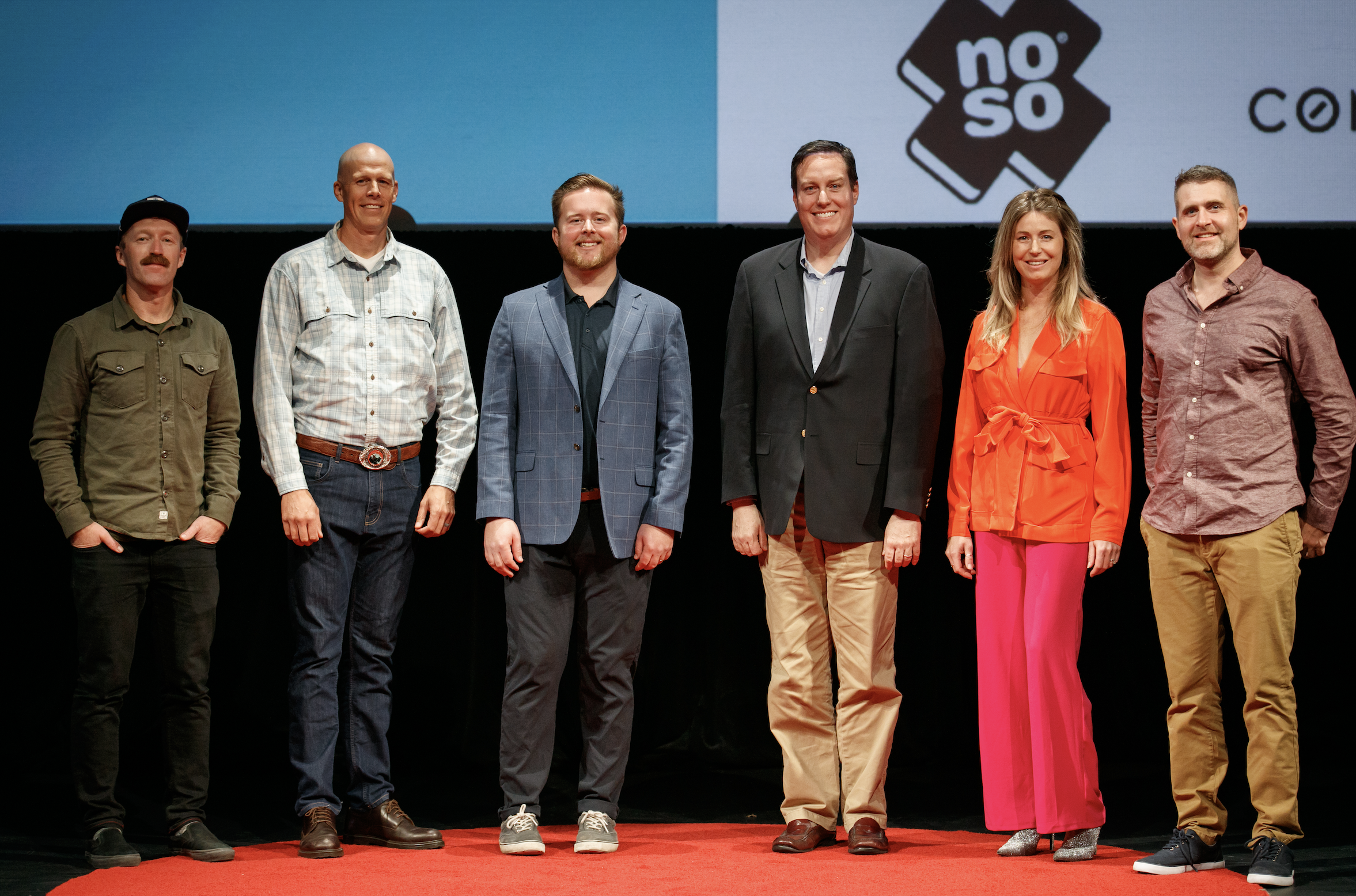McJunkin aims to clean water with code
After cleaning up waterways, winner of Silicon Couloir’s 2023 pitch day has eyes on more government permits.
It’s not the typical childhood dream: patenting safer septic systems or inventing a so-called TurboTax for local construction permits. But James McJunkin, 27, has found some glory in grime and bureaucratic headaches.
McJunkin won this year’s Silicon Couloir “Panelist Choice Award” with a $20,000 prize during the organization’s Pitch Day for his growing software company, which is poised to transform how environmental health systems like septic are regulated.
McJunkin was an outdoorsy kid and self-described nerd, who spent his free time reading about animals he was supposed to see in Chesapeake Bay. The young CEO seems to have always moved quickly, but thoughtfully.
“It’s the very core to who I am,” he said, “I don’t do well with bureaucracy. You can ask my parents. I never was good at ‘This is just the way it is.’”
As a junior in high school in Washington D.C. McJunkin was an intern for his mom, a real estate developer, when he met an inventor with a chronically failing septic system in his backyard.
With an allowance from the county, George Frigon jerry-rigged a new septic tank. Through home experiments, Frigon found that a recirculating system with an above-ground cabinet was cheaper and easier to operate than other septic systems.
Disturbed by the long-standing nutrient pollution near his home and wanting to spend more time around scientists like Frigon, McJunkin spent the next five years working with Frigon to patent and certify the LooLoop.
McJunkin’s first pitch was to his parents to cover patent costs. He got help from an aunt, who was a retired medical device engineer and executive.
With LooLoop on the backburner in college, McJunkin graduated from Dartmouth College in 2018. He’d grown up coming to his parents’ vacation home in Jackson Hole and had an internship with Vertical Harvest.
In 2018, he was surprised to find news articles about Fish Creek being categorized as an impaired waterway.
“Everything seemed very clean and pristine,” he said, but the more he learned, the more it made sense. Septic systems bloom in a place that’s experiencing a housing boom in an area that doesn’t have a lot of existing water infrastructure. A couple of decades down the line, septic systems start to fail and sewage pollution creeps into the waterways.
He thought he’d sell his patent for LooLoop; however, after doing research to pitch to companies, he realized a company to buy his didn’t exist.
“What we figured out pretty quickly was how fragmented and how outdated the industry is,” he said.
McJunkin saw that local governments were already backlogged in certifying applications for new septic systems, and understaffed offices were spending almost 90% of their time just checking boxes. Checking out new technology was going to take a lot longer.
There are over 3,000 different jurisdictions that govern new septic systems in the U.S. The Environmental Protection Agency has estimated that about 25% of septic systems are malfunctioning, and about 20% of households rely on septic.
Since LooLoop needed an operating system, McJunkin’s company SOSystems invented one. His software also checks the rules of a new septic permit against the application.
Other people in Teton County government saw the new software could minimize risk and work. Some started to ask if they could use Sep.OS — the name of the software product from SOSystems — for themselves.
When both sides of the permit are using the software instead of just relying on drawings, there’s less gray area and a quicker turnaround.
“Everyone’s speaking the same language,” McJunkin said.
McJunkin is now in the process of trying to sell his software to all 23 counties and the department of environmental quality in Wyoming, where he’s lived for three years. He’s in the procurement process with Teton County.
In a beta test in August, Sep.OS processed Teton County’s 40-permit backlog in two weeks, performing seven times the amount of checks in the process. In a separate test with a state’s Department of Environmental Quality, the software spotted 10 errors in two days. The DEQ had taken six months to process the same permits and found no errors. McJunkin shared his results with the DEQ.
McJunkin found his software was 90% faster and seven times more accurate than human-checked permits.
As adoption spreads, McJunkin hopes to ride the wave of untapped billions from the federal government for water infrastructure, like the 2021 Infrastructure Investment and Jobs Act.
Software is a lot easier to scale up than down. Wyoming will be the proving grounds, with many counties seeing low levels of applications.
“If we can add value for them,” he said, “that’s a really good indication that we can add value for any county in the country.”
